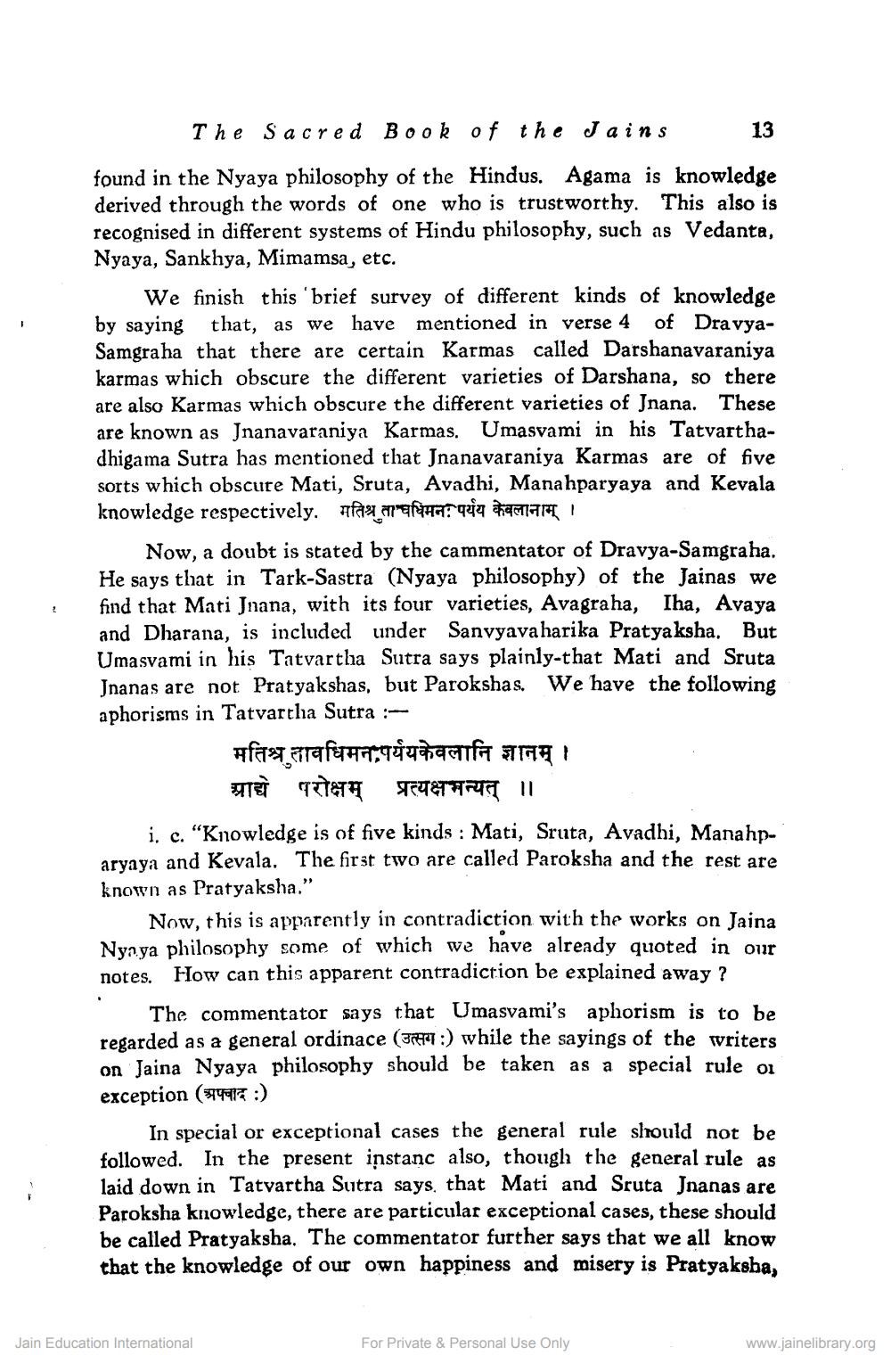________________
The Sacred Book of the Jains
found in the Nyaya philosophy of the Hindus. Agama is knowledge derived through the words of one who is trustworthy. This also is recognised in different systems of Hindu philosophy, such as Vedanta, Nyaya, Sankhya, Mimamsa, etc.
We finish this brief survey of different kinds of knowledge by saying that, as we have mentioned in verse 4 of DravyaSamgraha that there are certain Karmas called Darshanavaraniya karmas which obscure the different varieties of Darshana, so there are also Karmas which obscure the different varieties of Jnana. These are known as Jnanavaraniya Karmas. Umasvami in his Tatvarthadhigama Sutra has mentioned that Jnanavaraniya Karmas are of five sorts which obscure Mati, Sruta, Avadhi, Manahparyaya and Kevala knowledge respectively. मतिश्रु ता वधिमनः पर्यय केवलानाम् ।
Now, a doubt is stated by the cammentator of Dravya-Samgraha. He says that in Tark-Sastra (Nyaya philosophy) of the Jainas we find that Mati Jnana, with its four varieties, Avagraha, Iha, Avaya and Dharana, is included under Sanvyava harika Pratyaksha. But Umasvami in his Tatvartha Sutra says plainly-that Mati and Sruta Jnanas are not Pratyakshas, but Parokshas. We have the following aphorisms in Tatvartha Sutra :
मति तावधिमनः पर्यय केवलानि ज्ञानम् ।
आद्ये परोक्षम् प्रत्यक्षमन्यत् ॥
13
9
i. c. "Knowledge is of five kinds: Mati, Sruta, Avadhi, Manahparyaya and Kevala. The first two are called Paroksha and the rest are known as Pratyaksha."
Now, this is apparently in contradiction with the works on Jaina Nyaya philosophy some of which we have already quoted in our notes. How can this apparent contradiction be explained away?
Jain Education International
The commentator says that Umasvami's aphorism is to be regarded as a general ordinace (:) while the sayings of the writers on Jaina Nyaya philosophy should be taken as a special rule or exception (अपवाद :)
In special or exceptional cases the general rule should not be followed. In the present instanc also, though the general rule as laid down in Tatvartha Sutra says, that Mati and Sruta Jnanas are Paroksha knowledge, there are particular exceptional cases, these should be called Pratyaksha. The commentator further says that we all know that the knowledge of our own happiness and misery is Pratyaksha,
For Private & Personal Use Only
www.jainelibrary.org




